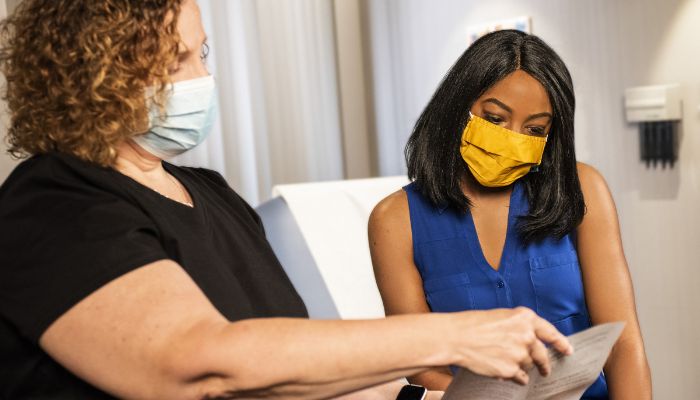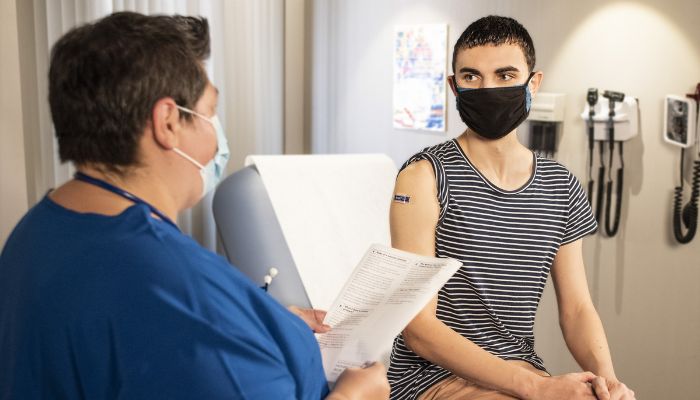
Ever wondered if a background check includes a drug test? You’re not alone. It’s a common query, especially when you’re gearing up for a new job.
While both background checks and drug tests serve to ensure the integrity and safety of the workplace, they are distinct processes. A background check primarily focuses on an individual’s past, while a drug test assesses their current state regarding substance use. The overlap, if any, between these two can vary based on company policy and legal regulations.
No, a background check does not inherently include a drug test. While both are used by employers during the hiring process, they are separate procedures. However, some employers might require both as part of their hiring protocol.
Let’s delve into the world of background checks and drug testing. We’ll demystify the process, pinpoint the differences, and help you prepare.
Table of contents
Understanding Background Checks
First, you need to understand that a background check is a thorough review of your past, focusing on your criminal record, education, employment history, and sometimes, credit report. This process is commonly used in pre-employment screenings to verify an applicant’s suitability for a given role.
Understanding background checks is crucial in today’s competitive job market. It’s not just about scrutinizing your criminal background check; it’s about showcasing your integrity, reliability, and trustworthiness to potential employers. The background screening process is conducted meticulously, leaving no stone unturned, and is carried out with your consent.
It’s also important to note that the information revealed in a background check is governed by laws to protect your privacy. Only relevant information can be used in the decision-making process by employers.
Now, you might be wondering: does a background check include a drug test? This can vary depending on the company and job position. However, it’s essential to prepare yourself for all possibilities during the pre-employment screenings.
With this understanding of background checks, you’re better equipped to navigate the job application process. Next, we’ll delve into the components of a typical background check to give you a more comprehensive understanding.
Components of a Typical Background Check

Diving into the components of a typical background check, you’ll notice it consists of several key elements. The background check process is comprehensive, designed to give a potential employer a detailed image of your history and character.
Primarily, the check may include your criminal history. This includes both minor offenses and severe crimes you may have committed. Additionally, your past employment history will be reviewed, including the duties you performed and your reasons for leaving previous positions.
Secondly, your education history is verified. This ensures that the degrees or certifications you’ve claimed on your resume are accurate. References, too, can be a part of this check. Potential employers may reach out to people you’ve worked with to gain insights into your work ethic and character.
A credit check might also be conducted, especially for roles that involve handling money. This gives employers an idea of your financial responsibility.
Finally, while not always a standard part of the background check process, pre-employment drug testing can be included. This is usually contingent on the nature of the job and the policy of the company.
Once complete, all this information is compiled into a background screening report that’s then reviewed by your potential employer.
Are Drug Tests Part of Background Checks?

When it comes to the hiring process, many job seekers have questions about what to expect. Two common procedures that potential employees often wonder about are the background check and drug tests. But what’s the difference between the two, and do they overlap?
A background check company or background screening service conducts background checks, also known as background screenings, to verify a job candidate’s criminal history, employment history, and other relevant details. This process ensures that potential employers have a clear understanding of who they are hiring. The background verification process typically involves criminal searches, employment verification, education verifications, and sometimes even social media background checks. A background report or background screening report is then generated, which might include details from public records, criminal record background check, and even motor vehicle record checks.
On the other hand, drug tests specifically detect the presence of illegal drugs, prescription drugs, and other substances in a person’s system. Employers conduct drug screenings, like urine testing, hair testing, and oral fluid tests, to maintain a drug-free workplace. The substances tested depend on the type of drug test, whether it’s a 5-panel drug test, 10-panel drug screenings, or more extensive 10-panel drug test screens. Drug testing program protocols might vary, but the goal is to identify drug abuse and ensure that job candidates or active employees aren’t under the influence of illicit drugs or abusing prescription drugs.
Now, to the question at hand: Are drug tests part of background checks?
Generally, a drug screen is a separate procedure from a background check. However, there are situations where they might overlap. For instance, during pre-employment screenings, a prospective employer might require both a background check and a pre-employment drug test. This is especially common in industries where employees operate heavy machinery, like road construction, or in civil service jobs where the level of security required is high.
Legal considerations and constraints also play a significant role. At the federal level, there are strict guidelines and federal guidelines governing both background checks and drug tests. The Fair Credit Reporting Act (FCRA) regulates how a consumer reporting agency can provide information to employers. Meanwhile, the Drug-Free Workplace Act mandates drug-free workplace policies for certain government agencies and contractors. It’s essential for employers to adhere to these guidelines and for job seekers to be aware of their rights.
In conclusion, background checks and drug tests serve different educational purposes in the employment process, but company policy and the type of job can sometimes intertwine them. Always consult with legal advice if you have legal questions regarding these procedures.
The Role of Drug Testing in Employment

Often, you’ll find that drug testing plays a crucial role in the employment process, particularly when job roles involve safety-sensitive duties or regulatory compliance. In the hiring process, employers may require potential employees to take a pre-employment drug test as part of a comprehensive drug testing program. They design this program to maintain a workplace that’s safe and productive, without the influence of illicit substances.
Drug testing not only helps maintain safety standards but also boosts productivity and morale. It’s not uncommon for employers to conduct periodic drug tests even after hiring, to ensure continued compliance. A robust drug testing program can discourage workplace drug use and encourage employees to stay clean.
The specifics of pre-employment drug tests, including what substances are tested for and how the tests are administered, can vary widely from one employer to another. However, the ultimate goal is always the same: to create a safe, productive work environment.
In the next section, we’ll delve deeper into the differences and similarities between a background check and drug testing – two critical aspects of many employers’ hiring processes.
Background Check Vs Drug Testing
When you’re up for a job, it’s crucial to understand the difference between a background check and a drug test, as they’re not the same. A background check company carries out pre-employment background checks to verify your identity, education, and employment history, among other things. This process doesn’t typically include drug testing.
On the other hand, drug testing is a separate procedure that employers may require. It involves testing your biological samples, such as urine, blood, or hair, to detect the presence of drugs or alcohol in your system. The type of drug test used can vary depending on the employer’s preference and the nature of the job. Some jobs may require more comprehensive drug screenings than others.
How to Prepare for a Background Check and Drug Test?

Navigating the employment process can be daunting, especially when faced with a background check and a drug test. However, with the right preparation, job seekers can approach these screenings with confidence. Here’s how to prepare:
- Being Honest in Applications: Always provide accurate information on your application. Whether it’s your employment history, dates of employment, or educational purposes, honesty is paramount. A background screening company or consumer reporting agency will verify the details, and discrepancies can raise red flags for potential employers. Remember, a minor error or omission can be perceived as intentional deceit.
- Knowing Your Rights: Before undergoing a background check or drug test, familiarize yourself with your rights. At the federal level, the Fair Credit Reporting Act (FCRA) outlines the rights of individuals undergoing background checks. For drug tests, understand the strict guidelines and policies set by your prospective employer and the federal government. If unsure, seek legal advice to ensure you’re well-informed.
- Understanding the Potential Drugs Being Tested: Different testing methods, such as the 5-panel drug test or 10-panel drug screenings, test for various substances. Whether they are recreational drugs, prescription drugs, or illegal drugs, you must understand what the test detects. This knowledge can help you avoid accidental false positives.
- Considerations for Prescription Medications: If you’re on prescription medications, be proactive. Some medications might result in a positive result on a drug screen. Always carry documentation from a medical professional, and inform the testing facility or background screening service beforehand. This transparency ensures that a legitimate medical prescription isn’t mistaken for drug abuse.
In summary, preparation is the key to navigating the background check process and drug screenings smoothly. By being honest, knowing your rights, and understanding the tests, you can present yourself as a trustworthy and informed job candidate.
Conclusion
In conclusion, a background check doesn’t typically entail a drug test. They’re two separate entities, each serving a different purpose in the hiring process.
But, don’t let the grass grow under your feet. Always be prepared for both. Understand what each process involves and be ready to comply.
Remember, thorough preparation and honesty are your best allies when applying for a job. Your prospective employer’s trust is crucial, so make sure you leave no stone unturned.
FAQs (Based on People Also Ask)
Q1: Can an employer drug test without telling you?
Generally, no. Most employers must inform employees or job candidates about drug tests as part of their company policy or employment agreement. However, there are exceptions, especially if the drug testing program is outlined in the employee handbook or if there are safety concerns in specific industries. Always refer to local and federal guidelines to understand specific rights and regulations.
Q2: How long does a background check take?
Typically, 3-5 business days. The duration of a background check can vary based on the depth of the search and the background screening company used. Simple checks might take a few hours, while more comprehensive checks, like county searches or criminal history searches, can take longer. Some checks, especially if they involve public records or federal courts, might extend beyond the typical timeframe.
Q3: What do employers look for in a drug test?
The presence of prohibited substances. Employers typically look for commonly abused drugs, both illegal drugs and prescription drugs that are used without a valid prescription. The substances tested for can vary based on the type of drug test used, such as a 5-panel drug test or a 10-panel drug test. Commonly screened drugs include marijuana, cocaine, opioids, amphetamines, and more.
Q4: Can you refuse a drug test?
Yes, but there may be consequences. An individual can refuse to take a drug test, but this might lead to adverse outcomes, especially if drug screenings are a condition of employment. Refusing might result in the withdrawal of a job offer or termination from a current position. It’s essential to understand the company policy and any legal implications before making such a decision.